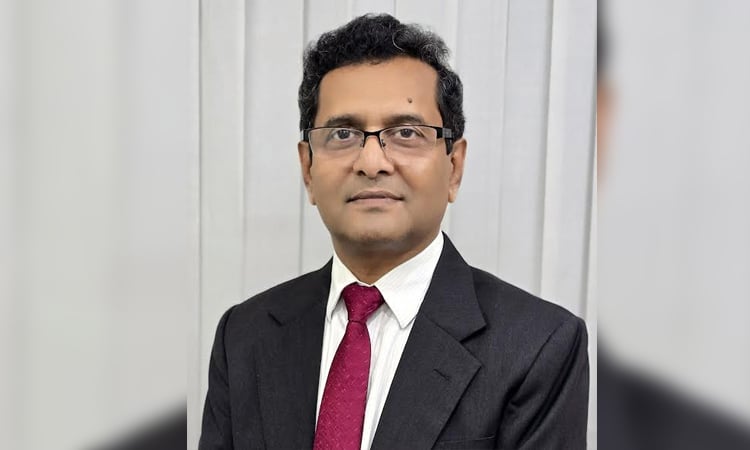News Flash
News Flash

By Borun Kumar Dash and Abdur Rouf
DHAKA, Nov 19, 2025 (BSS) - Nearly 80 percent of modern liver-care services in Bangladesh are now available at Dhaka Medical College Hospital (DMCH) either at low cost or completely free.
However, a state owned Gastro Liver institute, supposed to be a specialized establishment for treatment of gastro-liver diseases, has no post for liver specialist or hepatologist there, raising questions about the institute’s purposes.
Due to such policy inconsistencies and lack of confidence, patients are bound to go abroad to take treatment at a high price. As a result, Bangladesh has fallen behind Nepal and Pakistan in critical services like liver transplantation.
In an interview with BSS, Associate Professor and Head of the hepatology department at DMCH Dr ABM Shakil Gani highlighted the issues.
“The main reason Bangladeshi patients go abroad for treatment is the lack of trust. It is also true that proper punishment for medical negligence is insufficient, and even when punishment is given, it’s rarely noticed. This further intensifies the trend of going abroad,” he said
Highlighting his experience of working at hepatology department of DMCH for the past 11 months, he said during this time, we have been able to ensure most liver-related treatments and diagnostic tests at very low cost—and in many cases absolutely free.
When asked about liver treatment facilities at DMCH, Dr Gani said, teamwork of the doctors, staffs, and authorities could introduce a state-of-the-art service like Trans-Arterial Chemo-Embolization (TACE) and Microwave Ablation (MWA) for liver cancer patients at DMCH.
Treatments like ‘PAIR’ for liver cysts, diagnostic tools such as liver biopsy and FNAC (Fine Needle Aspiration Cytology), as well as procedures like draining liver abscesses or abdominal fluid- almost everything- are now available in our hospital, he said.
Despite major progress of the treatment of liver diseases at DMCH, Dr Gani said some limitations still persist in the country’s overall healthcare system.
Liver treatment facilities also made a great progress in private sector, he said, adding that except liver transplantation, all other treatments of liver like cirrhosis or cancer are available in the private sector.
According to him, misinformation, lack of trust, and poor coordination are the main reasons to encourage the people to have the world-class treatment already available in the country.
“For the sake of national interest and prevent the outflow of huge amounts of money, we must address this crisis of trust. All of us must work collectively. Awareness building, restoring faith in the system, and creating a patient-friendly healthcare environment are essential to build public confidence,” he said.
Dr Gani highlighted the role of media to imbue the people to have health services in the country saying journalists can extend a helping hand alongside the government.
He said, doctors are almost always blamed directly for any flaws in the healthcare system, whereas their opinions were rarely sought.
But, healthcare is the output of whole team ranging from technicians, nurses, assistants to trolley-bearers or cleaners. If any part of this chain fails, the doctors are blamed, which severely erodes public trust.
Media should allocate a segment of their editorial judgement to build a stronger bridge between organizations of medical professionals and media, he noted.
When asked about the causes of liver problems in Bangladesh, Dr Gani said, “Globally, fatty liver disease is rising, and Bangladesh is no exception.
Lack of physical activity, dietary change, and high diabetes prevalence are major contributors. However, Hepatitis-B (HBSAg) still remains the leading cause of liver cancer and cirrhosis in Bangladesh.
He said, thanks to the expanded immunization programme over the last 20 years, the number of HBSAg positive cases have decreased to a large extent with almost no Bangladeshi under the age of 20 carries this virus now.
Highlighting the shortage of manpower and institutional weaknesses, Dr Gani said, almost every medical college in Bangladesh now has at least one hepatologist, though only 130 specialized hepatologists for 16 crore people of Bangladesh is very low.
When asked about the progress of liver transplantation in Bangladesh, he said, the services is better in the private sector comparing to public sector. Patients need for liver transplantation is deprived of getting proper services.
Dr Gani said, globally, liver transplantation is the second most essential transplant service after kidney transplantation. Yet Nepal and Pakistan are ahead of Bangladesh in this area. Although liver transplantation has recently resumed here, a fully independent liver institute is now essential.
Dr Gani urged people to be cautious about their health saying- “To maintain healthy liver, we must restrain the sources of waterborne diseases. Foods made with water- such as chotpoti, fuchka, panipuri- should not be consumed from street vendors, because unsafe water and exposed food often spread hepatitis A and E viruses.
“These viruses directly attack the liver and can cause severe conditions ranging from ordinary jaundice to acute liver failure. Therefore, safe drinking water and personal hygiene are non-negotiable,” he said.
He said another major cause of liver damage is peoples’ inclination to traditional remedies like Kobiraji and Herbal treatment.
“These types of quack therapies or practice have recently proliferated alarmingly. Excessive public interest in such remedies promoted on YouTube and Facebook has become one of the leading causes of chronic liver injuries,” Dr Gani said.